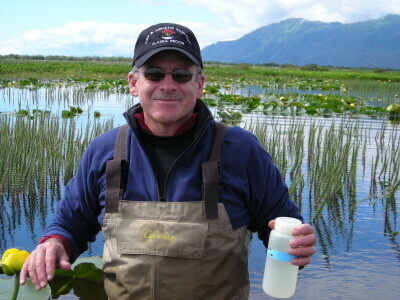
The University of Notre Dame’s Linked Experimental Ecosystem Facility (ND-LEEF) will host an event in its “Science at Sunset” series from 6:30 to 7:30 p.m. Sept. 27 (Thursday). The event will take place at the Morrison Family Pavilion within St. Patrick’s County Park located on Laurel Road in South Bend and feature a presentation by Gary Lamberti, professor and former chair of biological sciences at Notre Dame, titled, “The global freshwater crisis – challenges and solutions.”
In discussing the presentation, Lamberti said, “Fresh water is arguably the planet’s most imperiled resource, with more than 1 billion people lacking access to clean water and 3 billion lacking adequate sanitation.” At the event, he will explain the challenges affecting this natural resource and how those issues impact public health and biodiversity in freshwater systems. Lamberti, affiliated member of the Environmental Change Initiative, will also share his global perspective on how the environment will adapt and how human populations could ensure freshwater access for current and future generations.
ND-LEEF will provide snacks for the free program and attendees are welcome to bring their own beverages, including beer and wine. Glass containers and other alcoholic drinks are prohibited; all beverages must be brought in plastic or metal containers. Although the County Parks and ND-LEEF partner on many science-related programs, the “Science at Sunset” series is unique in that it is designed for adults.
“This is an opportunity for adults to hear about cutting-edge environmental research in an informal outdoor setting, enjoy some food and chat with the researchers and each other,” said Evie Kirkwood, director of the St. Joseph County Parks.
The program is free, but registration is required by calling the County Parks’ program reservation line by Monday (Sept. 24) at 574-654-3155.
The Environmental Change Initiative (ND-ECI) at the University of Notre Dame brings together more than 50 researchers across disciplines to help people and ecosystems adapt to climate change, mitigate the effects of land use change, predict species occurrences in a shifting world and improve water quality. The initiative works hand-in-hand with partners to support research that matters to society, answering the most critical environmental questions of our time. To learn more about ND-ECI, visit environmentalchange.nd.edu.
Originally published by at research.nd.edu on Sept. 17.